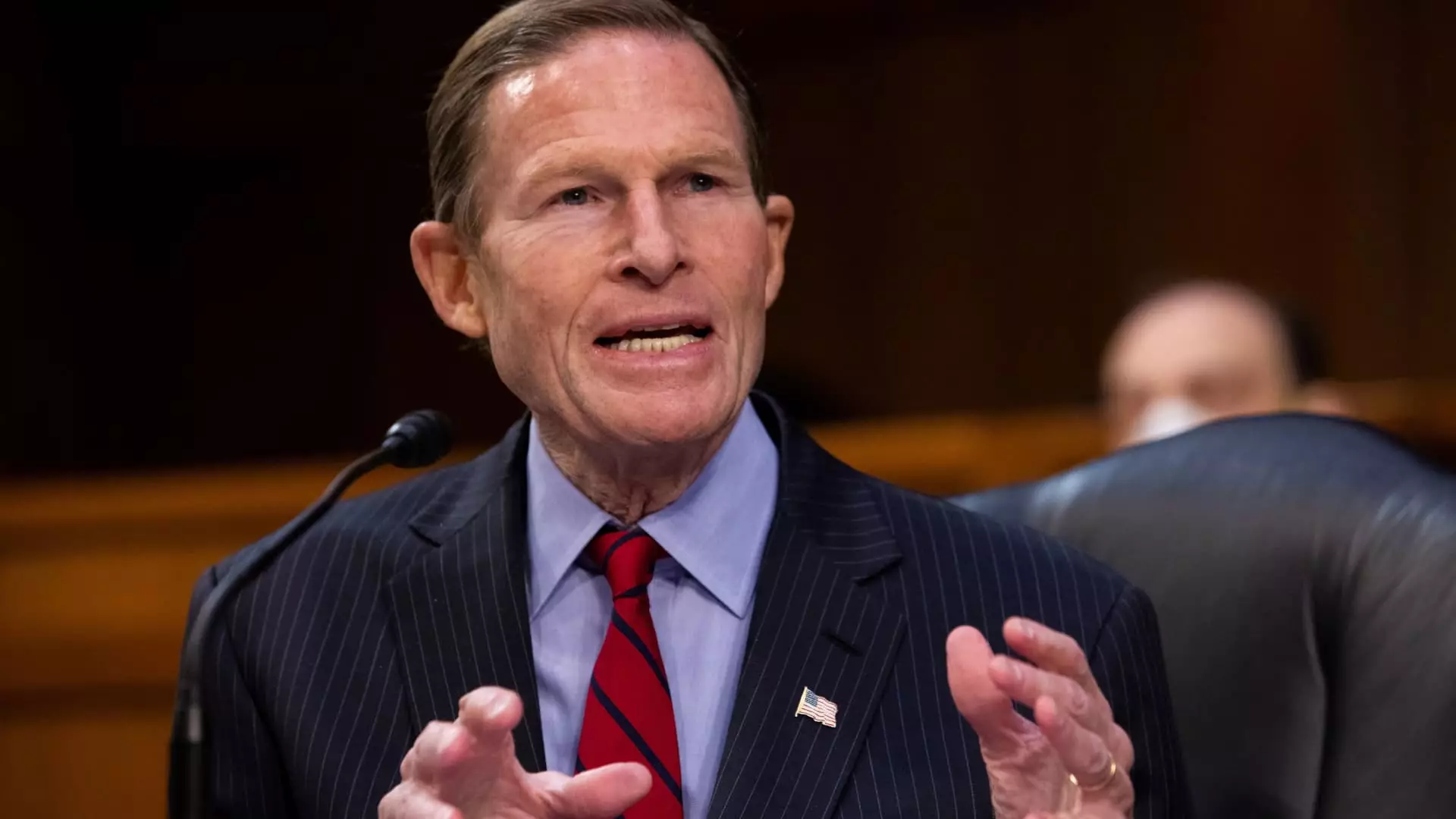In a move that has raised eyebrows and incited warnings from lawmakers, Visa’s partnership with Elon Musk’s social media platform, X, signifies more than just a shift in payment methods; it reflects a deeper malaise in the tech-finance landscape. This alliance, crafted within the corridors of corporate power, seems to lack a moral compass and raises several pertinent questions about consumer protection and ethical governance.
Senator Richard Blumenthal’s recent inquiry into this partnership is not merely a formality. The senator raises glaring issues tied to Musk’s previous efforts to dismantle the Consumer Financial Protection Bureau (CFPB), an essential watchdog for consumer rights. Blumenthal’s critical letter to Visa underscores the precarious intersection of social media and financial services, warning that leveraging X for peer-to-peer payments may lead to rampant scams and fraud—concerns that should alarm every user of the platform.
Musk’s Motives: Eroding Consumer Protections
When Elon Musk purchased Twitter in 2022 and rebranded it as X, few anticipated how intertwined it would become with financial transactions. However, with Musk’s actions against the CFPB, it seems he may be attempting to clear a path for an unregulated digital wallet, potentially prioritizing profit over user safety. By seeking to undermine the regulatory framework designed to protect consumers, Musk isn’t just bending the rules; he is looking to break the very system that ensures accountability in financial transactions.
Moreover, the implications of adjudicating financial operations through a platform rife with disinformation and malicious activity raise additional concerns. Can we trust X, a site often characterized by scams and bots, to ensure that our payment data remains secure? The fact that Musk’s operatives gained access to critical CFPB data systems adds another layer of suspicion and potential malfeasance.
Visa’s Responsibility: A Moral Obligation
As the world’s largest credit card network, Visa has a fiduciary responsibility to maintain a secure payment infrastructure. Each transaction on its platform must undergo rigorous scrutiny and compliance to prevent financial crimes such as money laundering and fraud. Yet, with its partnership with X, Visa steps into murky waters that might dilute that responsibility.
The letter from Senator Blumenthal serves as a clarion call, urging Visa to disclose its operational strategies and compliance measures with regulatory requirements. The public has a right to know how Visa intends to monitor and govern this partnership, especially when its collaborator has shown a propensity for reckless innovation that disregards traditional consumer protections. If Visa aims to absolve itself from responsibility in the face of scams facilitated by X, it may risk its reputation and customer trust—a dangerous gamble in the financial services sector.
Ethics Over Profits: The Call for Transparency
The audacity of Visa’s engagement with X also calls to question the ethical considerations that underpin financial partnerships today. Eager to expand its payment services, has Visa overlooked the red flags associated with Musk’s leadership? Such complacency could have far-reaching consequences for consumers already grappling with the complexities of digital financial services.
Blumenthal’s push for transparency regarding this deal isn’t merely a Senate investigation; it’s a demand for ethical accountability in a time when financial institutions should be enacting higher standards of consumer safety. Consumers need to be assured that their money and personal information are placed in secure hands, not those of an entity that has displayed a blatant disregard for regulatory oversight.
Ultimately, the unfolding partnership between Visa and X could usher in a new era of digital finance, but at what cost? This relationship promises convenience for users in theory, yet it simultaneously poses a perilous threat if left unchecked. With governance, regulation, and ethics taking a backseat in this unfolding narrative, the future of financial transactions on social media hangs in the balance. Each consumer must remain vigilant and demand more from corporations that wield so much power over financial systems.

Leave a Reply